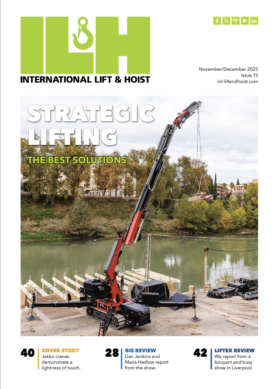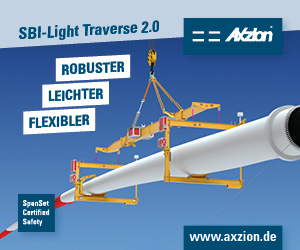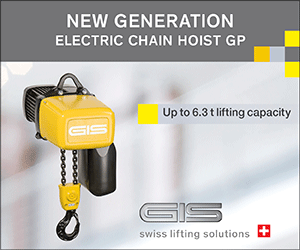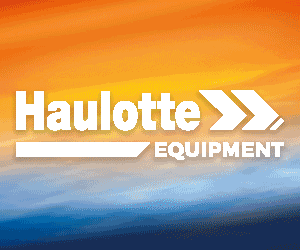)
LEEA makes the case for LOLER
The Lifting Equipment Engineers Association (LEEA) has responded to the UK government’s review of health and safety legislation by voicing support for retaining LOLER (Lifting Operations and Lifting Equipment Regulations) in its present form.
The LEEA believes that watering down LOLER, or merging it with PUWER (Provision and Use of Work Equipment Regulations), is unlikely to reap any significant cost savings for industry, but could undermine standards of safety in overhead lifting.
Geoff Holden, chief executive of the LEEA, said: “We recognise the potential to streamline the overall health and safety framework in the UK. However, the LEEA believes that LOLER represents a sensible and flexible approach to overhead lifting, and should be maintained.”
The LEEA has made its views known via the consultation and review process that was led for the government by Professor Löfstedt. Holden added: “When it was introduced in 1998, LOLER made life much more straightforward for duty holders. Instead of a patchwork of different rules and regulations, it provided a single piece of legislation that applied to all lifting equipment and lifting operations, across every industry. As well as being well accepted in the UK, an increasing number of companies operating in the developing world have chosen to adopt LOLER as best practice. This would tend to support the idea that it is both a reasonable and effective basis for safe overhead lifting.
“The report recognises the value of risk-based legislation such as LOLER, and acknowledges that problems are often the result of misunderstanding or over-zealous interpretation of the rules, rather than the rules themselves. And whilst it raises the possibility of merging LOLER and PUWER, it confirms that it is hard to make an economic case for doing so,” said Holden.
Despite the positive findings of the Löfstedt Report, the LEEA remains concerned that the government’s drive to reduce the amount of health and safety legislation could come at a price. “We must not forget that overhead lifting-related accidents remain a significant cause of deaths and serious injuries in the workplace,” said Holden.
“In addition to the human cost, even relatively minor incidents can have serious economic consequences for the businesses concerned. It is therefore vital that key requirements of LOLER, such as the need to have lifting equipment thoroughly examined on a regular basis, are not watered down. We would urge any companies or organisations with an interest in safe lifting to make their views on LOLER known via their local MP.”











